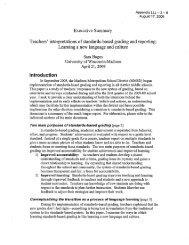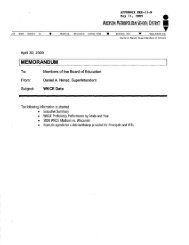MADISON METROPOliTAN SCHOOl DISTRICT - School Information ...
MADISON METROPOliTAN SCHOOl DISTRICT - School Information ...
MADISON METROPOliTAN SCHOOl DISTRICT - School Information ...
You also want an ePaper? Increase the reach of your titles
YUMPU automatically turns print PDFs into web optimized ePapers that Google loves.
The observer will see:<br />
1. Teacher engaging in book talks and mini-lessons<br />
(explicit demonstrations) to support students in the<br />
development of independent reading strategies.<br />
2. Students applying what they have learned in the<br />
mini-lessons during guided practice.<br />
3. Students selecting texts and enjoying reading for a<br />
sustained period.<br />
4. Teacher conferencing with students to provide<br />
individual instruction on any aspect of the reading<br />
process.<br />
5. Students reflecting on their reading through writing.<br />
6. Teacher and students sharing their thinking and<br />
assessing their independence at the end of the<br />
designated reading time.<br />
Proficiency Levels<br />
Meeting Approaching Below<br />
MODELED/SHARED WRITING WITHIN A WORKSHOP APPROACH<br />
Writers' workshop is a literacy block where children learn the processes of how to write. The teacher<br />
structures the time to ensure that children have an opportunity to plan, organize, and carry out writing<br />
projects. During writers' workshop, students learn how to select their own topics and develop these<br />
topics through multiple drafts. Thus, they acquire an understanding of the writing process. The writing<br />
process is associated with five phases of writing: prewriting (planning), drafting, revising, editing, and<br />
publishing. These stages provide writers with a framework for learning how to develop a writing project<br />
(Calkins, 1986). The goal is to teach students to become skilled with the writing process and to develop a<br />
habit of writing and view themselves as writers by writing daily. (Scaffolding Young Writers, 2001, p. 32).<br />
The observer will see:<br />
1. Teachers teaching explicit mini-lessons tailored to<br />
meet the needs of the majority of the students.<br />
2. Teachers teaching writing as a process, including<br />
composing, drafting, revising, editing, and publishing.<br />
3. Anchor charts that reflect current aspects of the<br />
writing curriculum under study (e.g. how to plan<br />
using text structure maps, crafting techniques, how<br />
to revise, edit, and publish).<br />
4. Mentor texts being used to support the writing<br />
process.<br />
5. Students working independently and using classroom<br />
tools to support their writing (e.g. keeping their<br />
writing notebooks and tools organized and ready to<br />
use).<br />
6. Teacher conferencing with individual students or<br />
Proficiency Levels<br />
Meeting Approaching Below<br />
31


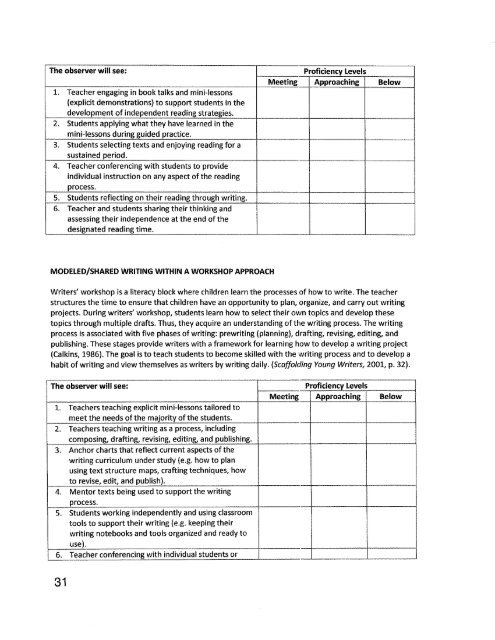
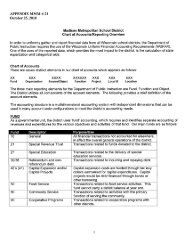
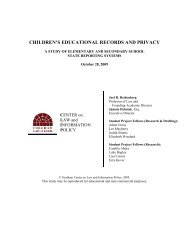
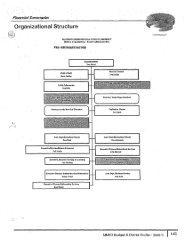
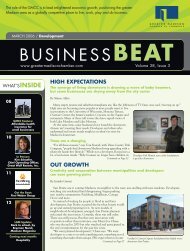
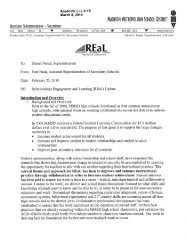
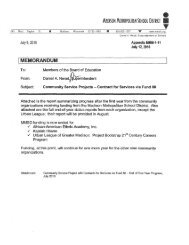
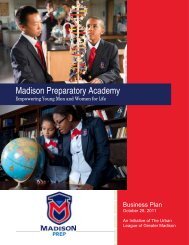
![by Shaina Wright [PDF] Ralph Waldo Emerson Prize 2006 - School ...](https://img.yumpu.com/26083584/1/174x260/by-shaina-wright-pdf-ralph-waldo-emerson-prize-2006-school-.jpg?quality=85)
